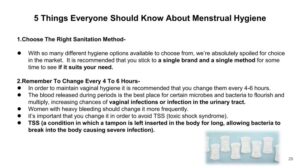Medication adherence tools are becoming essential in the healthcare landscape, acting as vital aids for patients managing their medication regimens. These tools help bridge the gap between prescription and patient, ensuring that individuals follow their prescribed treatments effectively. With the rise of technology, these tools have evolved to include various innovative solutions that empower patients and enhance their healthcare journey.
From mobile applications that allow users to track their medication schedules to sophisticated reminder systems, the variety of options available addresses different needs and challenges faced by patients. Understanding these tools can significantly impact health outcomes, making it crucial to explore how they work and the benefits they offer.
Medication Adherence Tools
Medication adherence is critical for the effective management of chronic diseases and overall health outcomes. As healthcare moves increasingly towards technology-based solutions, a variety of medication adherence tools have emerged in the market. These tools aim to assist patients in taking their medications as prescribed, ultimately enhancing treatment efficacy and improving patient health.The landscape of medication adherence tools is diverse, incorporating both traditional and modern technological innovations.
Traditional tools such as pill organizers and medication reminders can be effective; however, the integration of technology has introduced more sophisticated solutions. These include smart pill bottles that track when a patient takes their medication and send reminders via a connected app, electronic adherence monitoring devices, and telehealth platforms that facilitate communication between healthcare providers and patients.
Types of Medication Adherence Tools
A range of medication adherence tools is available that cater to different needs and preferences. Each type serves to improve adherence in unique ways, making it essential to explore the various options:
- Pill organizers: Simple containers that help patients manage their daily medication intake by separating doses for specific times of the day.
- Smart pill bottles: These bottles use sensors to detect when they are opened and can send alerts to patients’ smartphones if a dose is missed.
- Mobile applications: Apps that allow patients to track their medication schedules, receive reminders, and even connect with healthcare professionals for additional support.
- Telehealth platforms: Systems that enable healthcare providers to monitor patient adherence remotely and provide timely interventions if necessary.
- Wearable technology: Devices like smartwatches that can provide medication reminders and track health metrics, reinforcing adherence through daily routines.
Technology has significantly influenced medication adherence, transforming how patients interact with their treatment regimens. The advent of digital health technologies has provided patients with tools that not only remind them to take their medications but also educate them on the importance of adherence. For example, data analytics can provide insights into adherence patterns, allowing healthcare providers to tailor interventions that address specific barriers faced by patients.
Role of Mobile Applications in Tracking Medication Schedules
Mobile applications have emerged as vital tools in promoting medication adherence. These apps offer a user-friendly interface that helps patients manage their medication schedules effectively. They can include features such as:
- Reminders: Notifications that alert users when it is time to take their medications, ensuring timely adherence.
- Medication lists: A comprehensive database where patients can input their medication names, dosages, and schedules, facilitating easy tracking.
- Refill reminders: Alerts that notify patients when prescriptions are running low, helping to avoid lapses in medication supply.
- Educational resources: Access to information about medications, potential side effects, and the importance of adherence.
- Progress tracking: Features that allow users to visualize their adherence over time, reinforcing positive behavior.
The integration of mobile applications in daily health management not only streamlines medication adherence but also empowers patients to take an active role in their healthcare. As technology continues to evolve, these tools will likely become even more sophisticated, providing personalized support tailored to individual needs, ultimately contributing to better health outcomes.
Impact on Healthcare

Medication adherence plays a critical role in determining patient outcomes within the healthcare system. When patients consistently take their medications as prescribed, they are more likely to experience improved health, reduced complications, and a higher quality of life. Conversely, non-adherence can lead to significant adverse effects, not only for patients but also for healthcare providers and systems.The correlation between medication adherence and patient outcomes is significant.
Studies have shown that patients who adhere to their medication regimens experience a higher rate of favorable health outcomes, including lower hospitalization rates and improved disease management. For example, a patient with hypertension who takes their prescribed medication regularly is likely to maintain better blood pressure control, thereby reducing their risk of stroke and heart disease. In contrast, non-adherence can lead to disease progression, increased morbidity, and even mortality, creating a cycle of negative health repercussions.
Strategies for Enhancing Adherence
To improve medication adherence, healthcare providers can utilize several strategies that foster a supportive environment for patients. These strategies not only enhance adherence rates but also cultivate a stronger provider-patient relationship. Key strategies include:
- Patient Education: Providing clear and comprehensive information about the medications, including their purpose, benefits, and possible side effects, enhances understanding and encourages adherence.
- Simplifying Regimens: Prescribing medications that require fewer doses per day or using combination therapies can make it easier for patients to follow their treatment plans.
- Regular Follow-ups: Scheduling consistent follow-up appointments allows healthcare providers to monitor adherence and address any concerns or obstacles that patients may face.
- Utilizing Technology: Implementing reminder systems through text messages, apps, or automated calls can help patients remember to take their medications on time.
- Building Trust: Establishing a trusting relationship between healthcare providers and patients can encourage open discussions regarding adherence challenges, making it easier to find solutions together.
The effects of non-adherence extend beyond individual health, significantly impacting healthcare costs. Statistics indicate that non-adherence to medications results in an estimated annual cost of over $300 billion in the United States due to increased hospitalizations, emergency department visits, and additional treatments needed for preventable complications.
“Approximately 30-50% of patients do not take medications as prescribed, leading to a substantial increase in healthcare costs and negative health outcomes.”
In summary, the relationship between medication adherence and patient outcomes is profound. By implementing targeted strategies, healthcare providers can enhance adherence, ultimately leading to improved health for patients and reduced healthcare expenses overall.
Related Health Topics

Medication adherence is a critical aspect of managing chronic conditions, but it often intertwines with various other health topics that deserve attention. Understanding these related health areas can enhance our grasp of the broader implications of medication adherence tools and treatments. This section will explore how medication adherence compares with alternative treatments, its impact on mental health, and the significant role nutrition plays in supporting patients’ adherence to their prescribed regimens.
Comparison of Medication Adherence Tools with Alternative Treatments for Chronic Conditions
When discussing chronic conditions, it is essential to evaluate how medication adherence tools stack up against alternative treatments. Many chronic conditions, such as diabetes or hypertension, can be managed through lifestyle modifications alongside medication. Adhering to prescribed medication regimens typically ensures better outcomes; however, alternative therapies like physical therapy, acupuncture, or dietary changes also play significant roles. The following points highlight key distinctions and considerations:
- Effectiveness: Medication adherence tools largely aim to improve the consistency with which patients take their medications, while alternative treatments may offer symptomatic relief or long-term health benefits.
- Accessibility: Medications might be more accessible to patients through insurance, yet alternative treatments can vary based on location and practitioner availability.
- Patient Preference: Some patients prefer alternative treatments due to holistic approaches, while others rely on the efficacy of prescribed medications.
- Side Effects: Adverse reactions associated with medications can lead to non-adherence, whereas alternative treatments may present fewer side effects.
Implications of Medication Adherence on Mental Health Management
Medication adherence is not just crucial for physical health; it significantly impacts mental health management as well. Many individuals with chronic illnesses also face mental health challenges, such as anxiety or depression, which can complicate their treatment plans. Non-adherence to medication can exacerbate these issues, leading to deteriorating mental health and increased healthcare needs.Key implications of medication adherence on mental health include:
- Stability: Consistent use of prescribed mental health medications helps stabilize mood and improve overall mental well-being.
- Quality of Life: Improved adherence translates into better mental health outcomes, leading to a higher quality of life.
- Support Systems: Engaging family and friends can enhance adherence, ensuring that patients receive necessary encouragement and reminders.
- Professional Guidance: Regular check-ins with mental health professionals can facilitate discussions about adherence and any barriers patients may face.
Role of Nutrition in Supporting Medication Adherence
Nutrition plays a foundational role in supporting overall health, and it can significantly impact medication adherence among patients. A well-balanced diet not only promotes general well-being but can also affect how medications are absorbed and metabolized in the body. Nutrition education can empower patients to make informed dietary choices that complement their medication regimens.Considerations regarding nutrition and medication adherence include:
- Medication Interactions: Certain foods can interact with medications, enhancing or inhibiting their effectiveness. Understanding these interactions is vital for adherence.
- Motivation: A nutritious diet can enhance energy levels and mood, potentially motivating patients to adhere to their medication schedules.
- Health Education: Providing patients with clear information about how nutrition affects their health can improve adherence and foster proactive health management.
- Personalized Plans: Tailoring nutritional advice to individual preferences and needs can help patients maintain both their dietary habits and medication adherence.
Final Wrap-Up
In conclusion, medication adherence tools play a pivotal role in improving patient outcomes and reducing healthcare costs. As technology continues to advance, these tools will likely become even more integrated into patient care, offering innovative solutions to ensure adherence. Embracing these resources not only supports individual health but also contributes to the broader healthcare system, indicating a promising future for medication management.
Clarifying Questions
What are medication adherence tools?
Medication adherence tools are resources designed to help patients follow their prescribed medication regimens, including apps, reminders, and pill organizers.
How do mobile apps improve medication adherence?
Mobile apps provide reminders, track medication schedules, and offer educational resources, making it easier for patients to manage their medications.
What impact does non-adherence have on healthcare costs?
Non-adherence can lead to worsening health conditions, resulting in increased hospital visits and higher overall healthcare costs.
Can medication adherence tools help with mental health?
Yes, these tools can assist in managing medication schedules for mental health conditions, improving treatment outcomes and overall well-being.
Are there any alternatives to medication adherence tools?
Alternatives include traditional methods like pillboxes and family support, but technology-driven tools often provide more effective solutions.




